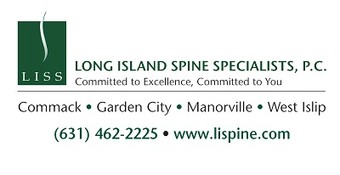|
|

|
« Back
I've heard that if you have a herniated disc, it will eventually heal itself. So why bother having surgery?
|
|
There are some long-term studies comparing the results of patients with degenerative disc disease and herniation who are treated conservatively versus surgically. Ten years down the road, the results are often the same. When compared over time, patients in both groups report similar results in terms of pain, other symptoms, and function.
The difference may be in terms of pain management at the time of the event (disc herniation) and the potential for transient (temporary) versus permanent neurologic damage. Left untreated, some disc herniations can put enough pressure on the spinal cord or spinal nerve roots to cause permanent damage. That can result in muscle weakness, loss of motor control, and even paralysis.
But it's not clear yet how to predict who will have a natural healing without permanent problems and who won't. Some people just can't tolerate the pain until the disc has been resorbed by the body -- that can take months to years. And during that painful period of time, muscle guarding and splinting in response to the pain can set up postural changes that get set and affect health in other ways.
There isn't a perfect formula that doctors can use to determine who should have surgery and who doesn't need surgery for disc herniation. All factors are taken into consideration including patient preferences, results of imaging studies such as MRIs, and patient clinical presentation (signs and symptoms).
Together, the surgeon and the patient make a treatment decision based on all the variables and factors present. Many times, surgery is delayed or avoided altogether by conservative care using activity modification, physical therapy, and medications. But when all else fails to relieve pain and restore function, then surgery might be the best course of action.
|
References:
|
|
|
« Back
|
|
|
|
*Disclaimer:*The information contained herein is compiled from a variety of sources. It may not be complete or timely. It does not cover all diseases, physical conditions, ailments or treatments. The information should NOT be used in place of visit with your healthcare provider, nor should you disregard the advice of your health care provider because of any information you read in this topic. |
 | All content provided by eORTHOPOD® is a registered trademark of Mosaic Medical Group, L.L.C.. Content is the sole property of Mosaic Medical Group, LLC and used herein by permission. |
|
